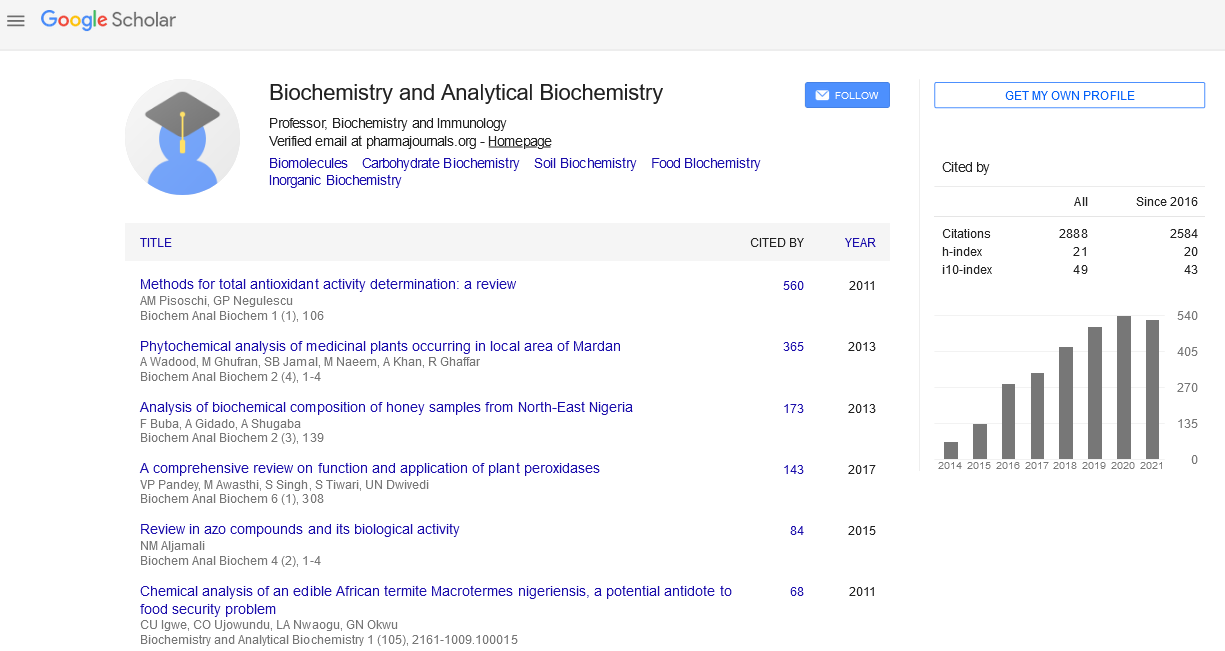Indexed In
- Open J Gate
- Genamics JournalSeek
- ResearchBible
- RefSeek
- Directory of Research Journal Indexing (DRJI)
- Hamdard University
- EBSCO A-Z
- OCLC- WorldCat
- Scholarsteer
- Publons
- MIAR
- Euro Pub
- Google Scholar
Useful Links
Share This Page
Journal Flyer

Open Access Journals
- Agri and Aquaculture
- Biochemistry
- Bioinformatics & Systems Biology
- Business & Management
- Chemistry
- Clinical Sciences
- Engineering
- Food & Nutrition
- General Science
- Genetics & Molecular Biology
- Immunology & Microbiology
- Medical Sciences
- Neuroscience & Psychology
- Nursing & Health Care
- Pharmaceutical Sciences
Abstract
Repellent Effects of Aloe pirottae (Aloaceae) Gel Extract and Brassica nigra (Brassicaceae) Essential Oil against the Malaria Vector, Anopheles arabiensis Patton (Diptera: Culicidae)
Malaria continues to be one of the major public health challenges in the world, particularly in Africa, despite the fact that numerous studies have identified effective methods of control. The plant species that include Brassica nigra (seeds) and Aloe pirottae (leaves) in Ethiopia were used traditionally as mosquito repellent and selected for the mosquito repellent activity test. The present study was undertaken to scientifically evaluate the repellent activity of two extracts from Aloe pirottae and Brassica nigra, respectively on forearms of human volunteers against Anopheles arabiensis mosquito under laboratory conditions. Four concentrations: 2.5, 5, 10 and 20% of the repellents were evaluated. The safety of these extracts was tested to make a further research and results showed no dermal irritation actions. In the course of our test for repellents against Anopheles arabiesnis, the oil extract of Brassica nigra was found to exhibit more remarkable repellent activity than gel extract of Aloe prottae with ED50 of 1.468% and 16.689%, respectively after 6 h exposure. The Chi-square values were significant at p<0.05 level. The present study indicates that the extracts derived from Aloe pirottae and Brassica nigra have good efficacy in mosquito repellency, thus their extracts could be used in the regulation of malaria vector. These extracts had no adverse effects on rabbits at 20% concentration. Further studies are required to determine formulations with enhanced activity against mosquitoes and their cost effectiveness. The field bioassays also need to be evaluated as the present study indicated the scope to use local plants to augment the ongoing malaria vector control.


